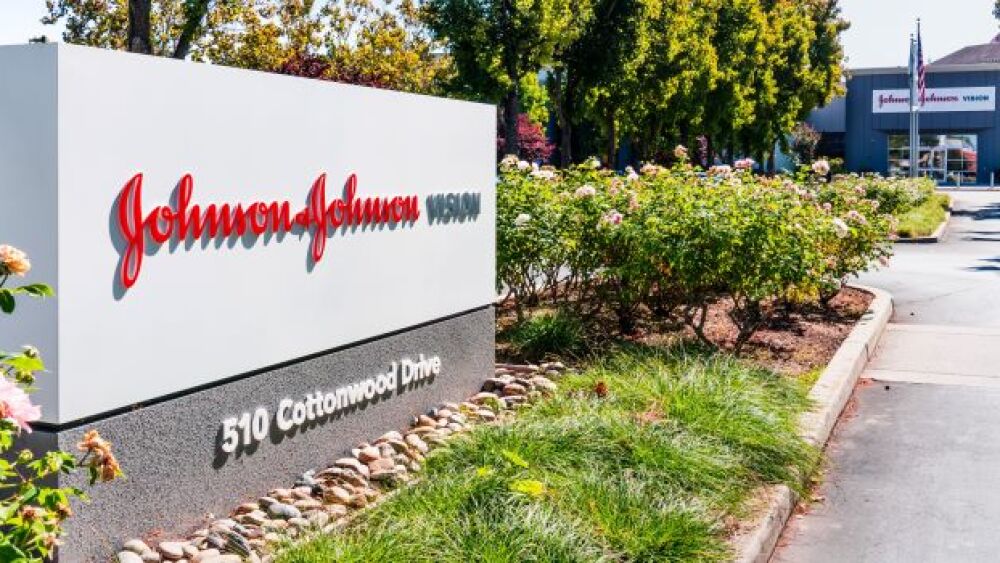Overall, against moderate-severe COVID-19 infection, the vaccine was 72% effective 28 days after vaccination in the U.S., 66% in hard-hit Latin America, and bottomed out at 57% in South Africa.
Sundry Photography / GettyImages
The results are in from Janssen (Johnson & Johnson‘s) global Phase III ENSEMBLE clinical trial, and its single-shot vaccine is 66% effective overall in preventing moderate-to-severe COVID-19, 28 days after vaccination.
On the surface, these results do not appear to be overly impressive, dwarfed by Pfizer/BioNTech’s 90% and Moderna.’s 94.5%. But this isn’t the whole story. As new strains began to emerge in the late days of 2020, the challenge for the next vaccine manufacturers in line became more difficult, and the 66% J&J announced this morning included participants infected with the emerging South African B.1.351 viral variant.
Importantly, the Janssen vaccine was 85% effective in preventing severe disease after 28 days across all geographical regions, and efficacy increased over time, with zero cases reported in vaccinated participants after the 49th day. It also demonstrated complete protection against COVID-19 related hospitalization and death. There were no reported cases requiring hospitalization, ICU admission, mechanical ventilation, or extracorporeal membrane oxygenation (ECMO) 28 days post-vaccination.
“Changing the trajectory of the pandemic will require mass vaccination to create herd immunity, and a single-dose regimen with fast onset of protection and ease of delivery and storage provides a potential solution to reaching as many people as possible. The ability to avoid hospitalizations and deaths would change the game in combating the pandemic,” said Janssen Research & Development Global Head, Mathai Mammen, M.D., Ph.D.
Overall, against moderate-severe COVID-19 infection, the vaccine was 72% effective 28 days after vaccination in the U.S., 66% in hard-hit Latin America, and bottomed out at 57% in South Africa.
This last number, combined with the 49% overall efficacy announced yesterday by Novavax, sets off alarm bells that the variants stemming from B.1.351 may have wandered away from the protection of current COVID-19 vaccine science.
Still, Janssen’s single-shot vaccine could go a long way in democratizing the global battle against the pandemic, given its clear logistical benefits, particularly for less-developed infrastructures. The vaccine is compatible with standard distribution channels and is estimated to remain stable for two years at -20°C (-4°F).
“These topline results with a single-shot COVID-19 vaccine candidate represent a promising moment. The potential to significantly reduce the burden of severe disease, by providing an effective and well-tolerated vaccine with just one immunization, is a critical component of the global public health response,” said Johnson & Johnson Vice Chairman of the Executive Committee and Chief Scientific Officer, Paul Stoffels, M.D.
“A one-shot vaccine is considered by the World Health Organization to be the best option in pandemic settings, enhancing access, distribution, and compliance. Eighty-five percent efficacy in preventing severe COVID-19 disease and prevention of COVID-19-related medical interventions will potentially protect hundreds of millions of people from serious and fatal outcomes of COVID-19. It also offers the hope of helping ease the huge burden placed on healthcare systems and communities.”
If approved, the Janssen vaccine’s 72% overall effectiveness in the U.S., and 85% against severe disease, would add another vaccine to the country’s arsenal and help to reduce the strain on the already overwhelmed healthcare system. According to data from the COVID Tracking Project, while overall U.S. cases have declined during the past week, the 7-day average for deaths increased and 108, 957 thousand remained hospitalized as of Tuesday.
J&J plans to file for U.S. Emergency Authorization Use (EUA) early next month and expects to begin shipments immediately.






